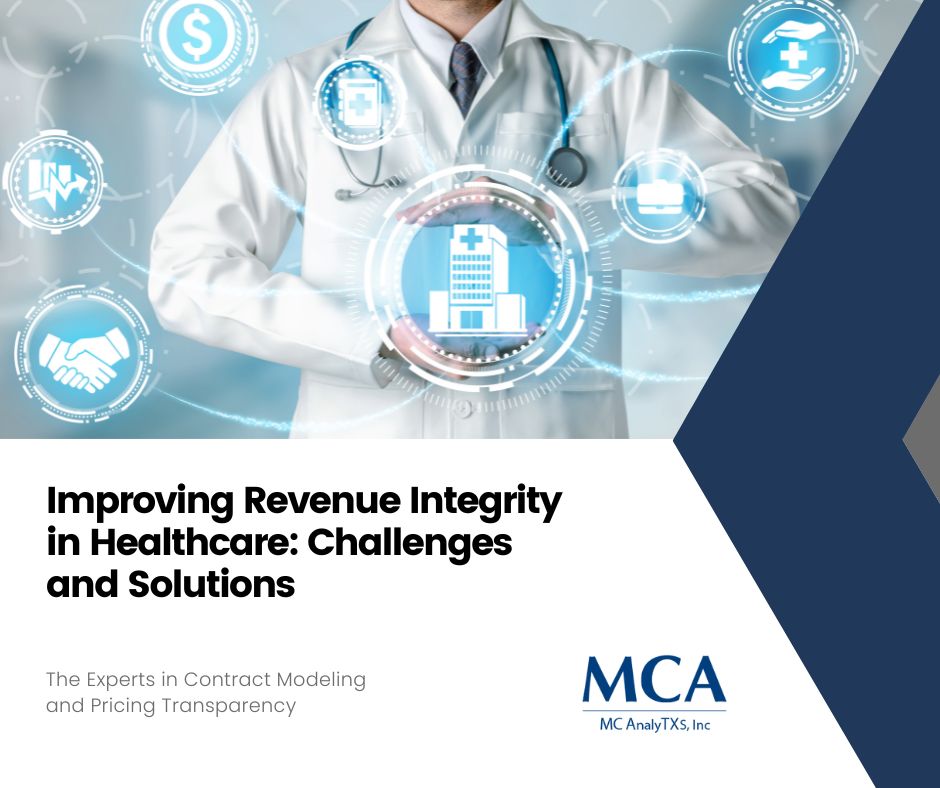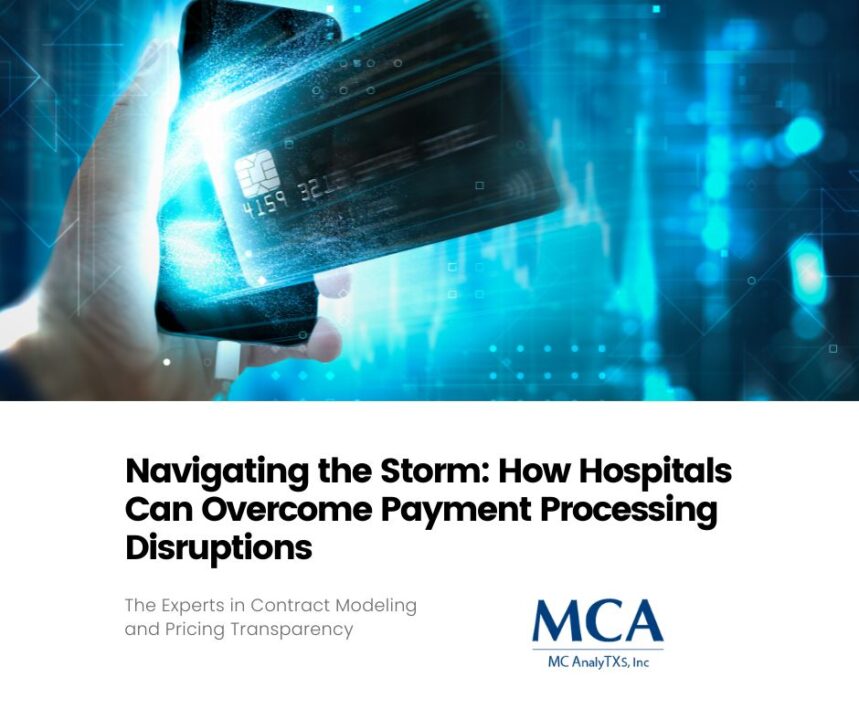
Navigating the Impact: Understanding the Surge in Disputes Under the No Surprises Act
February 19, 2024
A 4-Step Plan for RCM Denial Prevention
February 23, 2024In an era where healthcare costs are a predominant concern for all stakeholders—from providers and insurers to patients—healthcare organizations must assert a comprehensive and formidable approach to revenue integrity. The concept of revenue integrity is multifaceted, encompassing every step of the revenue cycle, from patient registration to claim submission and reimbursement. Despite this, only 44% of organizations report having a comprehensive revenue integrity approach, highlighting significant gaps in the healthcare system’s financial management.
The Hidden Pillars of Healthcare Operations
Unearth the Essence of ‘Revenue Integrity’
Revenue integrity is not just about capturing charges accurately; it is the cornerstone to ensuring that healthcare organizations are ethically maximizing their revenues and minimizing compliance risks. It demands a close synergy between clinical documentation, coding, charge capture, and billing. Mistakes within this intricate framework can lead to lost revenue and regulatory issues that tarnish an organization’s reputation.
Vital for Financial Health
The healthcare industry juggles an array of complex financial challenges. Revenue integrity is more than just a buzzword; it’s a financial strategy. Proper implementation can profoundly impact an organization’s solvency and capacity to invest in patient care, medical innovation, and workforce development.
Current State of Revenue Integrity
A System Under Pressure
The statistics are sobering: a large portion of healthcare organizations fall short in establishing and maintaining a comprehensive revenue integrity program. Inadequacies in this area often result in significant financial loss, around 1-3% of a hospital’s net patient revenue, according to Healthcare Finance. This can be catastrophic in the context of razor-thin operating margins that are characteristic of many healthcare providers.
Compliance Inadequacies and Legal Risks
Furthermore, suboptimal revenue integrity can expose healthcare institutions to severe legal risks, including fraud allegations, and investigations. The Department of Justice’s emphasis on healthcare fraud enforcement underscores the importance of maintaining strong compliance measures.
Challenges in Achieving Revenue Integrity
Skewed Standards
One of the most pronounced challenges in revenue integrity is the lack of standardized processes and definitions. Each department within an organization—be it cardiology, orthopedics, or radiology—has its own set of expectations and operational nuances, which can lead to inconsistencies in reporting and compliance.
The Data Deluge Dilemma
In an increasingly data-driven healthcare system, the management of vast amounts of information presents a formidable obstacle. Data silos and incompatible systems impede accurate revenue recognition, leading to unclaimed revenue or, conversely, overbilling.
Regulatory Rigmarole
The labyrinthine regulatory landscape continues to grow, with ever-evolving reimbursement rules and coding guidelines. Staying abreast of these changes is a mammoth task. Failure to do so can lead to billing errors and non-compliance, both of which can be financially debilitating.
Strategies for Enhancing Revenue Integrity
The Tech Pillar
A reliable technology backbone is indispensable for modern healthcare organizations striving to establish revenue integrity. Solutions that can consolidate and analyze data from disparate sources are invaluable in detecting billing inefficiencies and compliance trends.
Cultivating Expertise
Robust revenue integrity initiatives involve more than software—people are just as crucial. Training programs and continuous education keep healthcare professionals informed about the latest regulatory updates and equip them with the skills to operate effectively within the revenue cycle.
The Watchful Eye: Audits and Monitoring
Regular audits are the bedrock of a proactive revenue integrity strategy. By scrutinizing processes and documentation, organizations can identify and rectify issues before they escalate. Continuous process monitoring tools can automate part of this surveillance, ensuring compliance remains a dynamic, real-time endeavor.
Benefits of Comprehensive Revenue Integrity
The Bottom Line: Improved Financial Performance
A well-implemented revenue integrity program translates directly to improved financial performance. It minimizes costly billing errors, identifies revenue leakage, and enhances cash flow predictability, bolstering an organization’s financial health.
Guarding Reputation and Patient Trust
Effective revenue integrity measures are pivotal in safeguarding an organization’s reputation. Trust is a currency in healthcare; a single scandal can erode patient confidence. A commitment to compliance and accurate billing practices sends a clear message of ethical operational standards.
Enriched Patient Care
The interplay between revenue integrity and patient care is more profound than is often acknowledged. Optimized billing processes free up resources that can be redirected toward improving care quality, increasing access, and advancing medical science.
Conclusion: Orchestrating the Healthcare Revenue Symphony
In the healthcare industry, where the margin between financial success and failure is razor-thin, revenue integrity is not a commodity but a necessity. It demands attention, investment, and a multifaceted strategy that incorporates technology, training, and continuous review. By embracing this concept wholeheartedly, organizations can enjoy not only improved financial outcomes but also enhanced compliance and, ultimately, the provision of better patient care.
Striving for robust revenue integrity is an ongoing endeavor, characterized by adaptability and a firm commitment to operational excellence. Healthcare professionals, especially those in leadership roles, must champion this cause, as it not only secures the institution’s financial viability but also upholds the ethical principles that lie at the heart of healthcare. As the healthcare landscape continues to evolve, these principles will serve as guiding stars, ensuring that integrity is not lost in the complex framework of billing and revenue.





